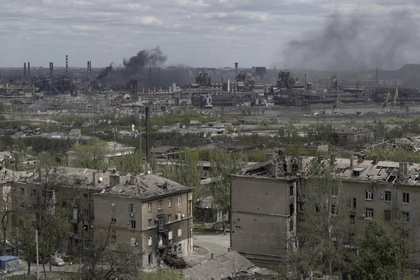So here is the story – the IMF/G7 is pushing Ukraine to do an early debt treatment. The idea is restructure the debt this year so perhaps Ukraine can get international capital market access next year. The IMF/G7 are nervous that there won’t be enough Western taxpayer money available to cover Ukraine’s financing needs, hence the push to bring in the private sector. I agree with the IMF that there is not enough Western taxpayer money to support Ukraine – there is a big financing gap.
The reality is, given prospects of a Trump presidency, Ukraine’s Biden package stuck in the House, Orban, Fico, Wilders et al., the Ukraine financing package, as drawn up by the IMF, does not add up (tens of billions in dollars shortfall, not even focusing on the military funding shortfall) and is only going to get worse.
JOIN US ON TELEGRAM
Follow our coverage of the war on the @Kyivpost_official.
In constructing the financing equation the IMF are playing to the narrative of those who don’t want to tap Russian assets – not making Russia pay.
The only way to square the Ukraine financing circle is to tap the $300 billion-plus in immobilized Russian assets in Western jurisdictions.
Actually, there is no point doing a debt restructuring this year, as given the broader Ukraine financing numbers don’t add up, even with that debt restructuring Ukraine won’t secure market access next year. Private investors won’t lend to Ukraine as they are not stupid and will understand the financing package does not add up and failure there risks military defeat which will further undermine the macro story and financing story.

Russiaʼs War Caused $170B in Infrastructure Damage to Ukraine
The key to all this is securing agreement to use the full package of Russian assets to Ukraine. Assets – not just interest.
Actually, in constructing the financing equation the IMF are playing to the narrative of those who don’t want to tap Russian assets – not making Russia pay. By playing along with the IMF, creditors partaking in any restructuring reduce the chances of frozen Russian assets being used for Ukraine and increase the possibility that Ukraine might lose the war. What creditors should be saying is no on debt restructuring until agreement is reached around frozen Russian assets.
The IMF assumes $14.8 billion in financing contributions from debt relief for 2024-27, but agreed this year. In fact, saying no to debt restructuring this year does not preclude the $14.8 billion in debt relief being eventually given to Ukraine. But the order should be first resolve the issue on frozen Russian assets then move to debt restructuring talks to secure the $14.8 billion or thereabouts to Ukraine. It’s staggering, tragic even that the IMF makes no mention of immobilized Russian assets in its last staff report – talk about heads in the sand.
If creditors agree to debt restructuring this year, Ukraine might get the $14.8 billion gains (not new money just debt service relief) for 2024-27; but that would undermine its cause to secure the $300 billion-plus. So this is a trade-off for Ukraine: $300 billion plus $14.8 billion, or just $14.8 billion. It’s a no-brainer for Ukraine – say no to debt restructuring being imposed by the IMF this year.
It’s staggering, tragic even that the IMF makes no mention of immobilized Russian assets in its last staff report – talk about heads in the sand.
My ask is for private creditors to stand up for Ukraine and make their voices heard –debt relief for Ukraine yes, but only after first tapping frozen Russian assets.
For me this is scandalous wealth transfer from Western taxpayers and pensioners to Russian taxpayers. The IMF and certain G7 governments (Italy, Belgium, France, Germany) are screwing their own taxpayers and pensioners (and US and British, Canadian taxpayers and pensioners) to protect Russian taxpayers and some of their own greedy big business which unfortunately all too often has long been in cahoots with the murderous Putin regime.
Those in the ECB et al. opposing using immobilized Russian assets should be honest with us and tell us how Ukraine will be funded if we don’t use these assets. And what happens if Ukraine fails, which it inevitably will if we don’t fund Ukraine adequately? The biggest risk to the euro as a reserve currency is not the use of immobilized Russian assets but Russia’s victory in Ukraine – and it will win if we don’t use immobilized Russian assets. A Ukrainian defeat means Russian tanks up close to NATO’s borders, risk of Russian attacks West, NATO defense spending going to 3 percent of GDP plus (an extra $400 billion a year across NATO), tens of millions of Ukrainian migrants moving West and then increased social, economic, political instability in Europe (rising racism and populism) and the risks of new wars in Europe (think Greater Hungary).
Lagarde? You got Argentina wrong, don’t get this call wrong, which is multiples more important to the survival of Western liberal market democracy.
Reprinted from @tashecon blog. See the original here.
The views expressed in this opinion article are the author’s and not necessarily those of Kyiv Post.
You can also highlight the text and press Ctrl + Enter











